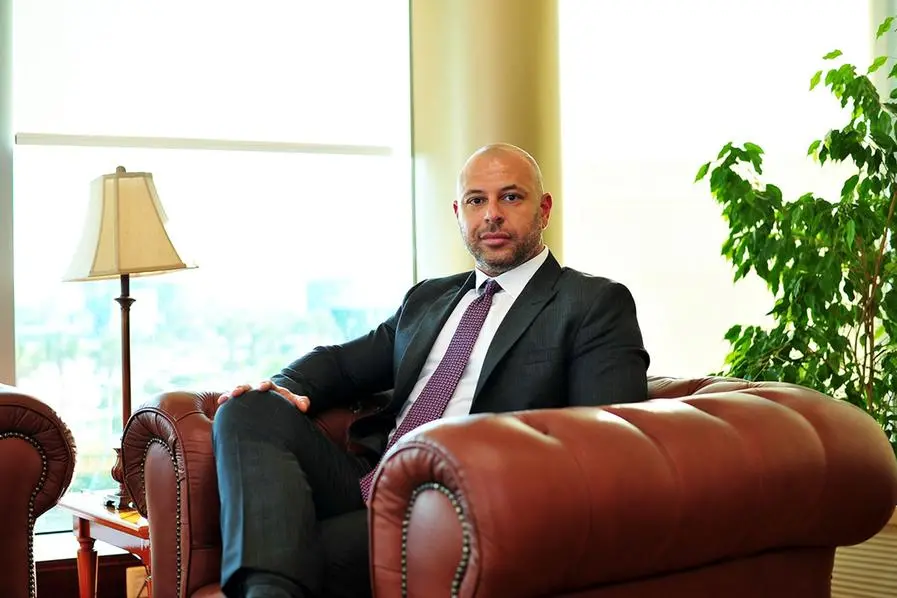PHOTO
The Egyptian Stock Exchange’s chairman is hopeful that 2023 will yield positive results for market capitalization in the country as the government proceeds with plans to float dozens of state-owned companies to generate more revenue for the cash-strapped economy.
“[The] EGX has always been a main pillar of the Egyptian economy,” EGX Executive Chairman Rami El-Dokany told Zawya last week. “I think this role is going to expand further, especially with the state announcing their policy to exit a lot of sectors and [shift] a lot of businesses to the private sector.”
The Egypt government has sought ways to reduce the growing financing gap caused by global economic turmoil in the wake of the invasion of Ukraine. The mass floatation aims at meeting the conditions of a recent IMF $3-billion assistance program that requires the state to reduce its footprint in the economy.
Selling stakes in state-run firms
Last week, Prime Minister Mostafa Madbouly finally announced that a total of 32 companies spanning several sectors, including banks, transportation, mining, energy, tourism, pharmaceuticals and chemicals, will be floated by March 2024.
He said that stakes will be either listed on the EGX or sold to strategic investors. He added that some companies may be subject to both private and public placements.
“We are always [listening to] and debating with all other stakeholders in the government and in the state. I think everyone [agrees] that the EGX is the best platform to provide liquidity to state-owned companies,” El-Dokany said, adding that EGX trading had ensured listed companies a total capital increase of EGP 30 billion in 2022.
“I would like to confirm that the EGX is ready and welcoming all IPOs in time,” El-Dokany said.
Although the government has released a list with the companies’ names, it has not specified the exit plan for each one yet.
“I understand that there is always a perception that we can engage private investors to have a private transaction in the beginning before going public,” he added. “I always say that we can have both a private placement and a public placement at the same time. This will always provide liquidity and better pricing.”
The 140-year-old EGX has a total of 240 listed companies spanning 18 sectors, with a market capitalization that reached $38.9 billion in December 2022. Market capitalization as a percentage of the Egyptian GDP reached a record high of 106.8 percent in 2007. Since then, it been on the decline for both global and domestic economic reasons, plunging to 11 percent in 2020, according to World Bank data.
El-Dokany argues this drop cannot be blamed on the EGX’s underperformance. “What happened was that the entire economy was growing. The GDP was growing tremendously by 5% or 6% per annum due to public expenditure. This public expenditure did not reflect on the EGX or listed companies,” he explained.
However, he is optimistic that the government’s recent privatization plan will take the percentage of the EGX’s contribution to the GDP to “a different place”.
Rising Prospects for More Foreign Investors
Besides reducing the role of the state in the economy, the IMF has also required the Central Bank of Egypt (CBE) to adopt a flexible exchange rate and to depreciate an overvalued local currency. Since March 2022, the Egyptian pound has lost almost 50 percent of its value. Last week, the pound reached a new low of 30.32/$ at the CBE.
According to El-Dokany, currency depreciation “has definitely a positive effect on the Egyptian market. What we have seen is that due to inflation and FX fluctuations, a lot of people have started putting their money into buying shares and stocks and into equity funds in order to start hedging and shielding their investments from FX fluctuations.”
This depreciation had also proven quite attractive to foreign investors as Egyptian stocks have become “cheaper and more efficient,” El-Dokany said. “We have seen a lot of foreigners coming into fixed-income markets and equity markets after that devaluation. The net selling position of foreign institutions has declined month over month from November to January.”
The net sales of trading by non-Egyptian institutions have dropped from EGP 3 billion in December to nearly EGP 300 million in January, according to an EGX performance report dated January 24. The same document says that the stock market has recently seen “a significant return” of key foreign institutional investors, including Goldman Sachs International, HSBC Bank PLC, Alkan International FZCO, Waha Investment Management Company SPC, UBS AG London Branch, Waha Capital Investments LLC, Emirates NBD Bank PJSC and Merrill Lynch International.
El-Dokany expects foreign investors to enter the market more aggressively after more clarity on the FX situation has been provided.
New Products Underway
To promote the EGX and attract more foreign investors, the EGX is holding roadshows this week in Saudi Arabia and Dubai along with HSBC and other investment banks, El-Dokany said.
The EGX is also rolling up its sleeves to launch new products this year, including carbon credit trading and derivatives for both Egyptians and foreigners. A Shariah-compliant index and a reshuffling of the short-selling instrument are also underway, El-Dokany added.
In recent years, the Egyptian economy has proven quite vulnerable to external shocks. Headline inflation reached a record high of 25.8 percent in January, and the country’s external financing needs are expected to reach at least $19 billion this year, according to a Fitch report. The estimate excludes bilateral debt obligations of $8 billion, representing deposits from Gulf sovereigns very likely to be rolled over.
“The current situation we are facing is a little bit unique,” El-Dokany said. “A lot of the variables are out of the Egyptian government’s control. The Egyptian economy will definitely see a positive push going forward because the current FX situation is more of a cash-flow situation, but the fundamentals of the economy are still strong.”
(Reporting by Noha El Hennawy; editing by Seban Scaria)




















